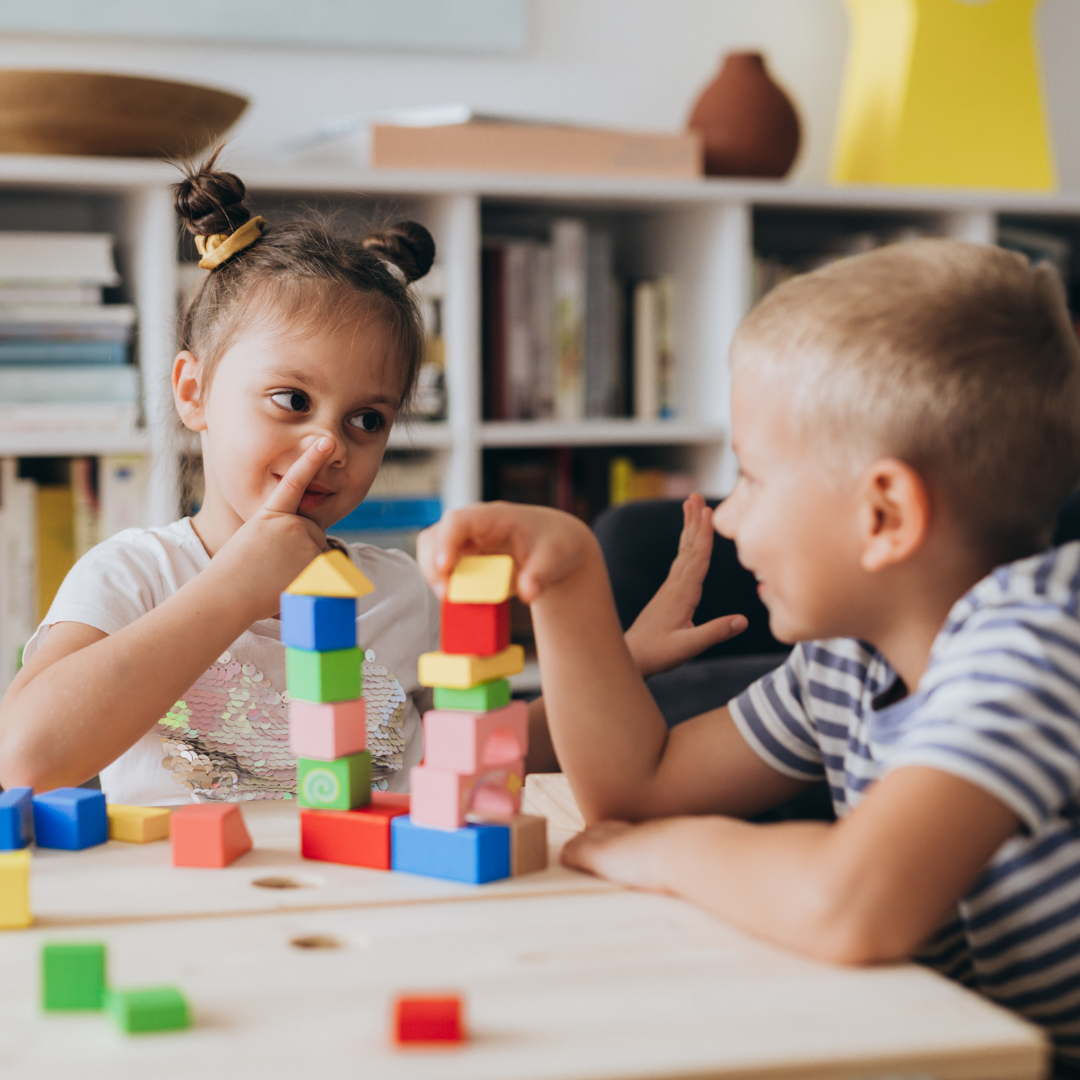6 Important Reasons We Play Games Together at Kids Place Pediatric Therapy
Parents often ask us why we will place two children together during a therapy session to play a game. This is a great question that has an even better answer! When two children are playing together, we are able to build several social and communication skills.
During a motivating game where we play together, we are able to target the following skills:
1. Eye Contact
Eye contact is important to signal active listening. It is also an essential component in paying attention to directions. Eye contact is something that many children need help, and learning with a peer can be easier for some children. One way that that we help to facilitate eye contact is bringing objects to our eye level, which directs the child’s eye gaze to the our partner’s eyes.
2. Turn Taking
Turn taking is an important skill to teach children, and pairing a child with a peer for one-on-one interactions introduces them to socialization skills. It is important for a child to be able to request a turn, as well as to be able to hand a toy over when it is someone else’s turn. We also teach children to attend to the game, even when it is not their turn. One way that that we help to facilitate turn taking is using the phrase “who’s turn is it?” paired with a visual cue “my turn” (palm to chest 2 times).
3. Initiating
When children are first learning to communicate, they are often responders, answering our questions and making choices that we present. They also learn language through imitation, saying a word after we say it to achieve a desired result. The end goal is for them to be initiators, which means that they verbally request and comment without being cued. A simple way we teach this in games is by waiting. We will let the children look to each other to decide how the game will continue. We will also use basic indirect cues, such as “Hmm, Johnny’s turn is finished. I wonder what will happen next.”
4. Proxemics
Teaching children about personal space (their own and others) is very important in creating the right connections and leaving a good impression. One way that we help to facilitate when objects or body parts are in peers’ personal space is by giving a verbal cue, “that is too close,” or by drawing their attention to peer’s reaction. We also work on teaching them to hand a peer an object without shoving, throwing, or grabbing the object.
5. Conversational Turns
We teach conversational turns by showing children how to allow their peer a turn to talk and how to engage in the conversation. We redirect when they veer off the topic at hand. One way that we help to facilitate appropriate conversational turns is by giving the verbal cue, “Wait your turn” or “Let your friend finish.”
6. Problem Solving Skills
Problem solving skills are developed through everyday life and experiences. Working in a group and learning the process of working through details of a problem to reach a solution together help lay the foundation for later cooperative group tasks. Even during simple games like Cariboo or building a Mr. Potato Head, we facilitate problem solving skills by trying not to jump in when things aren’t going as planned. We want children to be able to work together to trade objects, to move pieces out of the way or to request an action from each other.
As you can see, there are many ways to work on social language skills when we play games together. With a little structure, we are able to focus on important pragmatic elements, such as eye contact, turn-taking, initiating, proxemics, conversational turns and verbal cooperative problem solving. Parents can follow through with these tips at home when their children are playing with peers or siblings.
If you would like your child to join in on the fun of playing together at Kids Place Pediatric Therapy, we have 4 locations in Arizona to serve you! Contact us today to schedule an evaluation.







